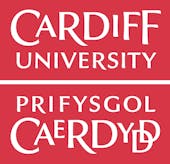Dr. Angelina Sanderson Bellamy is a Research Associate at the Sustainable Places Research Institute. Angelina’s areas of expertise encompass food production systems and land use/land cover changes, using a social-ecological perspective. She investigates the social drivers, particularly governance and support structures, of environmental change and the impact of land management on the delivery of ecosystem services.
Angelina initiated her first fieldwork project in Costa Rica in 1998, and since then she has been committed to research at the intersection of society and the environment. Over the past 16 years, this research has ranged from conducting interviews with more than 400 farmers and other agricultural workers and sampling avian, insect, water and soil specimens to coding and analysing data using spatial, quantitative and qualitative methods. During this time, Angelina developed an extensive network of contacts in Costa Rica and a deep and nuanced understanding of its culture, which enables her to conduct place-based research with a rich set of data addressing both socio-economic, biodiversity and spatial variables in the communities in which she works.
Angelina received her undergraduate degree in Human Biology (Hons) with a focus on Sustainable Development and the Environment from Stanford University, USA. She then worked at the International Geosphere Biosphere Program in Stockholm, Sweden before she began her PhD at Stockholm University in Systems Ecology. Her PhD thesis focused on management practices in coffee and banana production systems in Costa Rica, with an aim to identify production systems that reduce the environmental impact of export crop production. After completing her PhD, Angelina was awarded a 3 year fellowship from the Swedish Research Council to work jointly with Stanford’s Wood’s Institute for the Environment and the Stockholm Resilience Centre on land use change and the forest transition in Costa Rica.
Angelina’s research agenda explores the drivers of land use decisions and how these decisions influence ecosystem services, particularly food provision. Her planned research follows four lines of investigation:
Trade-offs between human well-being and ecological integrity in the face of land use/cover changes in Southern Costa Rica. This project has several objectives: (1) to elicit proximate drivers at the household scale for why producers decide to maintain forest or to clear it and bring it into production; (2) to analyse formal and informal institutions that can provide leverage points for enabling sustainable land use practices; (3) to develop and couple land use change models to biodiversity and ecosystem service models; (4) to develop scenarios of land use change; (5) to develop policy recommendations that may successfully influence land use changes to achieve a balance of human well-being and ecological integrity.
Environmental impact of certification schemes. This project stems from previous research on environmental impact of Rainforest Alliance (RA) certification in banana production and aims to further investigate certification practices to identify the essential strategies for influencing meaningful progress in environmental sustainability through certification schemes. By working together with certification agencies, research in this filed can be directly applied to make a positive impact on agricultural sustainability.
To measure the effectiveness of environmental policy tools by integrating modelling and evaluation in order to examine the ecosystem services impact of protected areas (in particular, access to clean water, flood control and carbon sequestration). This information will be used to analyse the comparative conservation value of different policy tools given the proximate drivers for land use changes in the region (Costa Rica).
Ecosystem services linkages between terrestrial and coastal ecosystems and the impact of environmental changes on food security. Coastal and marine fisheries are often considered separately from terrestrial food production systems, yet both are important components of food security and can have significant, sometimes unforeseen impacts on each other. There is a lack of data and models linking terrestrial and marine ecosystems; similarly, land use management is disconnected from marine conservation. Research will identify vulnerabilities in the broader socio-ecological system and anticipate how different pressures-- such as overfishing, intensification, land use changes and market prices-- may impact these coupled food production systems.
Experience
-
–presentResearch Associate, Sustainable Places Research Institute, Cardiff University
- Article Feed
- ORCID
- Joined


